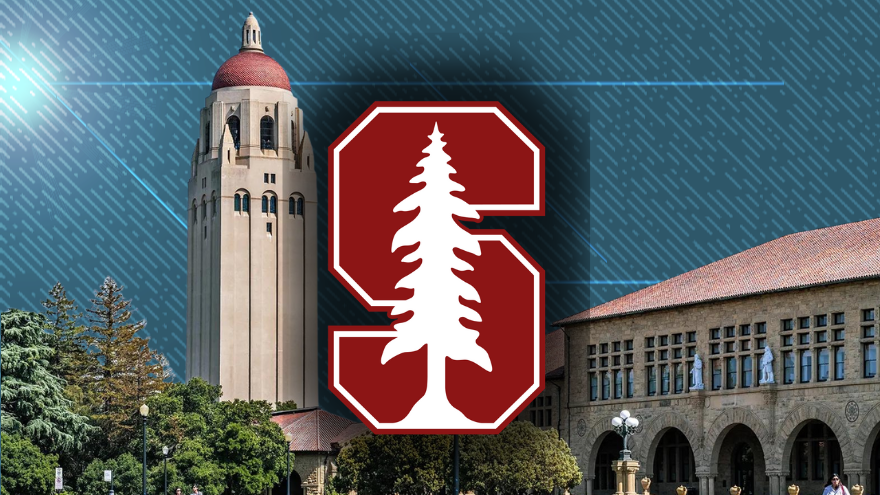Two circuit court judges have added Stanford to the list of law schools they will not offer clerkships in light of the school’s free speech policies.
Judges James Ho and Elizabeth Branch are two of 14 judges that announced in 2022 that they will not hire students from Yale Law School as clerks in response to recent incidents of discrimination and harassment of conservative speakers.
During a speech for the Texas Review of Law and Politics, Ho announced he had expanded his no-hire list to include Stanford, where he attended law school.
Ho said Stanford and other law schools “tolerate and even encourage … intellectual terrorism.”
“In a nation of over 300 million Americans, we’re bound to disagree on a wide number of issues. But we’re supposed to know how to agree to disagree with one another,” he said. “We’re supposed to engage one another with a presumption of good faith and in the earnest belief that there’s something we can learn from our fellow man. We’re supposed to fight it out in the political sphere—but then come together as colleagues, neighbors, and fellow citizens.”
“They try to terrorize people into submission and self-censorship, in a deliberate campaign to eradicate certain viewpoints from the public discourse,” said Ho.
Ho said students at certain law schools have shouted down speakers they do not agree with, relying on “disruption, intimidation, and public shaming.”
He noted that “students [who] yelled and screamed during a Federalist Society event featuring Kristen Waggoner” at Yale University were never punished by the school’s administration despite violating the school’s free speech policy.
According to the Alliance Defending Freedom – where Waggoner serves at the General Counsel – a “vitriolic mob” of about 120 students “shouted down the moderator (a Yale professor), childishly chanted, pounded on classroom walls, and reportedly disrupted nearby classes, exams, and meetings” and “harassed and physically threatened” the organizers of the event.
Police were called to the scene and Waggoner and the other speaker, Monica Miller of the American Humanist Association, were escorted away.
Similarly, hundreds of students at Stanford shouted down Fifth Circuit appellate judge Kyle Duncan during a speech on March 9.
Protesting students called the judge “scum,” asked why he couldn’t “find the clit,” and screamed, “We hope your daughters get raped,” per The Washington Free Beacon. None of the students were punished although the entire law school was required to go to a mandatory free speech training.
Diversity dean Tirien Steinbach, who interrupted Duncan’s speech, was placed on leave as a result of the incident.
Stanford Law School Dean Jenny Martinez formally apologized to Duncan, which students demanded she retract.
In a 10-page memo defending her apology, Martinez wrote that some students and law school administrators had received “hateful and even threatening messages.”
“There is temptation to a system in which people holding views perceived by some as harmful or offensive are not allowed to speak, to avoid giving legitimacy to their views or upsetting members of the community, but history teaches us that this is a temptation to be avoided,” wrote Martinez. “I can think of no circumstance in which giving those in authority the right to decide what is and is not acceptable content for speech has ended well.”
Martinez included Stanford’s Statement on Academic Freedom, which states that “freedom of inquiry, thought, expression, publication and peaceable assembly” will be protected and that “expression of the widest range of viewpoints should be encouraged, free from institutional orthodoxy and from internal or external coercion.” She stressed that while protests are permitted, disruptions were not.
“It’s not a coincidence that the worst disruptions typically occur at the worst schools when it comes to one critically important metric: intellectual diversity on the faculty and in the administration,” said Ho on April 1.
The judge said:
If you don’t have intellectual diversity in positions of leadership, who has the power, the motivation, and the strength of character to stand up for students, and for disfavored viewpoints, when these incidents occur? How do we know everyone’s views will be protected, if everyone’s views aren’t represented? Why should students welcome disfavored viewpoints in the classroom, when those viewpoints aren’t welcome on the faculty? What message does it send when you say you believe in diverse viewpoints—but it’s so obviously a lie?
The same checks and balances that we take for granted in our Constitution are entirely missing at too many schools.
Ho, who sits on the Fifth Circuit Court of Appeals, said law schools should at the very least “identify disruptive students, so that future employers will know who they’re hiring.”
Because clerkships are coveted and competitive opportunities for law students, Ho believes that more judges should join the moratorium movement in order to effect real change.
“Imagine that every judge who says they’re opposed to discrimination at Yale and Stanford takes the same path,” Ho said. “Imagine they decide that, until the discrimination stops, they will no longer hire from those schools in the future. How quickly do we think those schools would stop discriminating then?”

